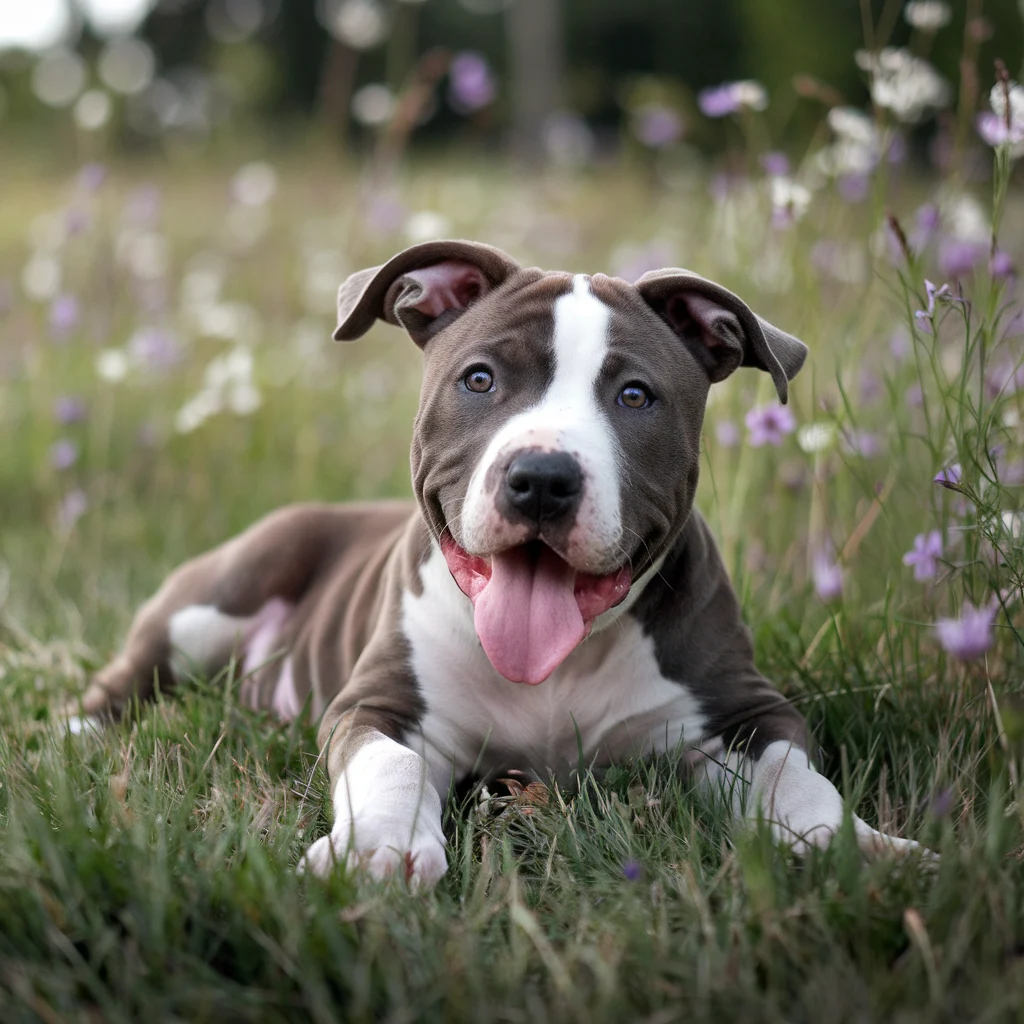Pitbulls: A Loyal and Loving Companion

Pitbulls are a widely misunderstood breed that, when raised in the right environment, can be some of the most loyal, loving, and affectionate pets. Known for their strength, energy, and strong bond with their families, Pitbulls are intelligent dogs that thrive in homes where they receive proper care, training, and socialization. Here’s a guide to owning and caring for a Pitbull, showcasing the incredible qualities of this often-misunderstood breed.
1. Why Pitbulls Make Great Pets
Despite their tough exterior and the unfortunate stereotypes that follow them, Pitbulls can be fantastic pets for the right family:
- Loyal and Affectionate: Pitbulls form strong bonds with their owners and are known for their loving and affectionate nature. They are often referred to as “nanny dogs” due to their gentle behavior with children when properly trained and socialized.
- Energetic and Playful: If you’re looking for an active pet, a Pitbull might be the perfect fit. They love to play, run, and engage in physical activities, making them ideal companions for active individuals or families.
- Intelligent and Trainable: Pitbulls are highly intelligent dogs that respond well to training. With consistent positive reinforcement, they can learn commands, tricks, and good manners, becoming well-behaved members of the household.
- Protective and Loyal: Pitbulls are naturally protective of their families, making them excellent watchdogs. Their strong loyalty and sense of duty ensure that they will stand by their owners no matter what.
2. Training and Socializing Your Pitbull
Pitbulls, like any breed, need proper training and socialization to be well-adjusted pets:
- Start Early: The best time to begin training a Pitbull is during puppyhood. Early socialization helps them grow into friendly, well-mannered adults. Expose them to different environments, people, and other animals to build their confidence and reduce the chance of behavioral issues.
- Positive Reinforcement: Pitbulls respond well to positive reinforcement techniques. Use treats, praise, and affection to reward good behavior, while avoiding harsh corrections or punishment, which can lead to fear or aggression.
- Consistency: Consistency is key when training a Pitbull. Establish clear rules and boundaries, and ensure that everyone in the household is on the same page regarding acceptable behaviors.
- Obedience Training: Enrolling your Pitbull in obedience classes can be an excellent way to socialize and train them. They’ll learn commands and how to behave in various settings, which will make your life easier and keep them well-adjusted.
3. Exercise and Playtime Needs
Pitbulls are an active and energetic breed that requires plenty of physical and mental stimulation to stay healthy:
- Daily Exercise: Pitbulls need at least an hour of exercise per day. This can include walks, runs, or playing fetch in the backyard. Regular exercise helps prevent boredom, which can lead to destructive behavior.
- Mental Stimulation: In addition to physical exercise, Pitbulls need mental challenges to stay sharp. Puzzle toys, training games, and interactive play sessions will help keep them engaged and prevent boredom.
- Safe Play: Pitbulls love to chew, so providing them with strong, durable toys is essential to keep their powerful jaws busy. Be sure to monitor playtime to avoid accidents, especially when playing with other dogs.
4. Diet and Nutrition for Pitbulls
Providing a balanced diet is essential to maintain your Pitbull’s health and well-being:
- High-Quality Dog Food: Choose a high-quality dog food that’s rich in protein to support your Pitbull’s muscular build and active lifestyle. Look for brands with real meat as the first ingredient and avoid foods with fillers or artificial additives.
- Portion Control: Pitbulls can be prone to weight gain if overfed, so it’s essential to control portion sizes and feed them according to their age, size, and activity level. Consult your vet for specific feeding guidelines.
- Fresh Water: Ensure your Pitbull has access to clean, fresh water at all times, especially after exercise or during hot weather.
5. Health and Common Issues
Pitbulls are generally healthy dogs, but like all breeds, they are prone to certain health issues. Being aware of these can help you provide the best care:
- Hip Dysplasia: Pitbulls can be prone to hip dysplasia, a condition where the hip joint doesn’t fit properly, leading to pain and arthritis. Regular vet check-ups and maintaining a healthy weight can help prevent this.
- Allergies: Some Pitbulls suffer from skin allergies, which can lead to itching, redness, and discomfort. Work with your vet to identify and manage any allergies your dog may have.
- Heart Disease: Heart conditions, such as aortic stenosis, are also a concern in Pitbulls. Regular check-ups and a healthy diet can help catch and manage these issues early.
- Regular Vet Visits: Routine check-ups with a vet are crucial to ensure your Pitbull remains in good health. Vaccinations, dental care, and preventive treatments for fleas and ticks should all be part of their healthcare routine.
6. Misconceptions About Pitbulls
Pitbulls have a bad reputation due to misconceptions about their temperament:
- Aggression: Many people wrongly believe that Pitbulls are inherently aggressive. In reality, Pitbulls are no more likely to be aggressive than any other breed when properly trained and socialized. Their behavior is shaped largely by their upbringing and environment.
- Family Dogs: Pitbulls, when raised in a loving, caring home, can be gentle and affectionate, especially with children. They often develop strong bonds with their families and are known for their loyalty.
- Breed-Specific Legislation (BSL): Unfortunately, due to misconceptions, some regions have breed-specific legislation that restricts or bans Pitbulls. If you’re considering adopting a Pitbull, make sure to check local laws regarding ownership.
7. Fun Facts About Pitbulls
- Working Dogs: Pitbulls were originally bred for farm work, including herding livestock and guarding property, and their strength and endurance make them capable working dogs today.
- Loyal Companions: Many Pitbulls serve as therapy or service dogs due to their loyalty, intelligence, and willingness to please.
- Love to Cuddle: Despite their tough appearance, Pitbulls love cuddling with their owners and can be very affectionate.
Conclusion
Pitbulls are a loving, loyal, and playful breed that, with the right training and environment, make excellent companions for families and individuals alike. Their energetic personality, intelligence, and strong bond with their owners make them a joy to have around. With proper care, training, and lots of love, a Pitbull can be a wonderful addition to your home. Don’t let the myths and misconceptions fool you – Pitbulls are one of the most affectionate and devoted breeds you can have.



